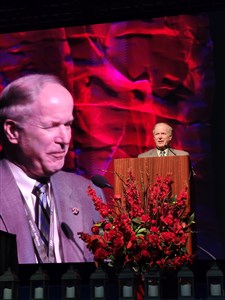Dr. Leonidas Johnson ’81 published a new chapter of his book on September 11, 2024. The book is titled “A Particular Visual Enlightenment: A Refraction of Science, Religion, and Health on Wellness and Fullness of Life”. You can read more about the book here. Congratulations Leonidas!
Patrick Seaton ’87
Patrick Seaton ’87 recently published his first book in May 2024, titled A Crocodile Brain Can Make or Break Your Sale: The Process and Science for Guiding Organizations to Buy from You. If you are looking for a way to Turn Your Transactional Sales Process into Problem-Solving Process, then this book is for you! This book dives into a decade’s worth of battle-tested experience, where theory meets practice. It’s not just about a process-it’s about the people and culture steering your sales ship to victory. Embrace the revelation that sales is both a science and a process, fostering a purpose-driven team and cultivating a customer-centric culture. Ready to unleash your sales superpowers with the insights of the crocodile brain? Your playbook awaits in A Crocodile Brain Can Make or Break Your Sale.
Available on Amazon, Apple Books, and Barnes & Noble. Congratulations Patrick!

Demetria Kalodimos ’81
Demetria Kalodimos ’81 and Betsy Phillips ’96 recently recorded a podcast episode together about Betsy’s new book, Dynamite Nashville: Unmasking the FBI, the KKK, and the Bombers Beyond their Control. In this episode, they dive into Betsy’s journey of researching three Civil Rights-era bombings in Nashville: Hattie Cotton school in September 1957; the Jewish Community Center in March 1958; and the home of attorney and councilmember Z. Alexander Looby in April 1960. You can listen to the podcast episode here, or read more about Betsy’s new book here. Congratulations!
John Kauerauf ’83
John Kauerauf ’83 was recently named the new Legal Counsel for UMC Council of Bishops. You can read more about this here. Congratulations John!
DeAnn (Ash) Worth ‘84
DeAnn (Ash) Worth ‘84 will retire July 31, 2024 after 38 years with State Farm Insurance in Bloomington, IL. She worked for the first 20 years as an Occupational Health Nurse and then moved to Life Insurance Claims Examiner for the rest of her career. Previously, DeAnn worked in OB and Pediatrics for Brokaw Hospital. She states that her passion for nursing lead her to work is short term missions all over the world in the Philippines, China, Egypt, Equatorial Guinea, and Mexico, as well as multiple areas of the USA. DeAnn will be moving to Florida to be near her youngest son’s family. Congratulations DeAnn!
Steve Johnson ’85
Steve Johnson ’85 recently retired after 20 years as the Principal at Highland Elementary School in Elgin. He began his career in Elgin School District U-46 in 1991 as a School Social Worker. He is ready to join his wife in retirement (34 years as a teacher) and travel or to do whatever else they find interesting! Congratulations Steve!
David Moravec ’84
David Moravec ’84 recently published his new book, Echoes Across the Tracks – Life Lessons Through Unexpected Connections.
In his new book, an unexpected connection with a New Orleans cab driver leads Charlie to hear Echoes Across the Tracks. Expecting a routine flight to O’Hare, Charlie finds himself instead drawn into a 20-hour adventure aboard a high-speed train covering an amazing 944-mile journey. Along the way, he encounters unlikely characters that hop on and off at 18 historic train stations. These magical stops lead to newfound friendships and lessons, prompting reflection on our own life experiences and choices. Echoes will leave you with a smile and a sense of purpose as you join Charlie on this unforgettable trip to Chicago. Read more about the book here and listen to David’s podcast interview here. This book is available through Barnes & Noble, Amazon Kindle, Paperback and Hardcover.
Congratulations David!

Lynne (Shaw) Sekarski ’85
Lynne (Shaw) Sekarski ’85 had her manuscript accepted for publication in the July/August 2024 issue of The Journal of Pediatric Nursing. She has worked with children and families with hereditary hemorrhagic telangiectasia for about 25 years.
You can read more about this amazing work here. Congratulations Lynne!
Peter Rose ’88
Peter Rose ’88 retired from Pfizer, Inc. in February 2024 after 32 years with the company. He was Associate Research Fellow and Team Lead for Crystallization Technologies within Chemical R&D based in Groton CT. He led a team of chemical engineers and chemists in the development of the final solid form of the active ingredients for many of Pfizer’s commercial pharmaceutical products. Peter contributed as inventor on 15 patents and authored/ co-authored more than 20 peer reviewed journal articles.
During his career, Peter was recognized for his scientific contributions by the American Chemical Society (ACS) with the Technical Achievements in Organic Chemistry award. In 2021, Peter was a member of the scientific team that received the ACS ‘Heroes in Chemistry’ award for the design and development of LOBRENA, a third-generation ALK inhibitor specifically designed by Pfizer scientists to inhibit the most common tumor mutations that drive resistance to current medications and to address metastases in the brain. Now residing in Rhode Island, Peter plans to enjoy their new home near the beach with his wife Carol, spend time with friends, and his two sons, continue his hobby of nature photography around the shoreline, and continue to perform music as a bass trombonist with various music groups in southern New England. Congratulations Peter!
Kris Condon ’84
Kris Condon ’84 recently came out with her second book, Fragments of Flossmoor: A Series of Essays on the Interesting, Curious, and Unique in Our Village. All of the proceeds are going to the Veterans’ Wall of Honor project, for which Kris is the corporate secretary-treasurer. The Wall of Honor is a long time in coming. Her paternal grandfather was the American Legion Post commander in 1945 who spearheaded the original World War II Honor Roll project, but the temporary marker they installed that day disappeared to history decades ago. Her father was 13 years old when the 1945 marker was dedicated, and at 92, he’s the corporate vice president of Flossmoor Veterans’ Memorial, which will benefit from the sales of this book. Read more here.

